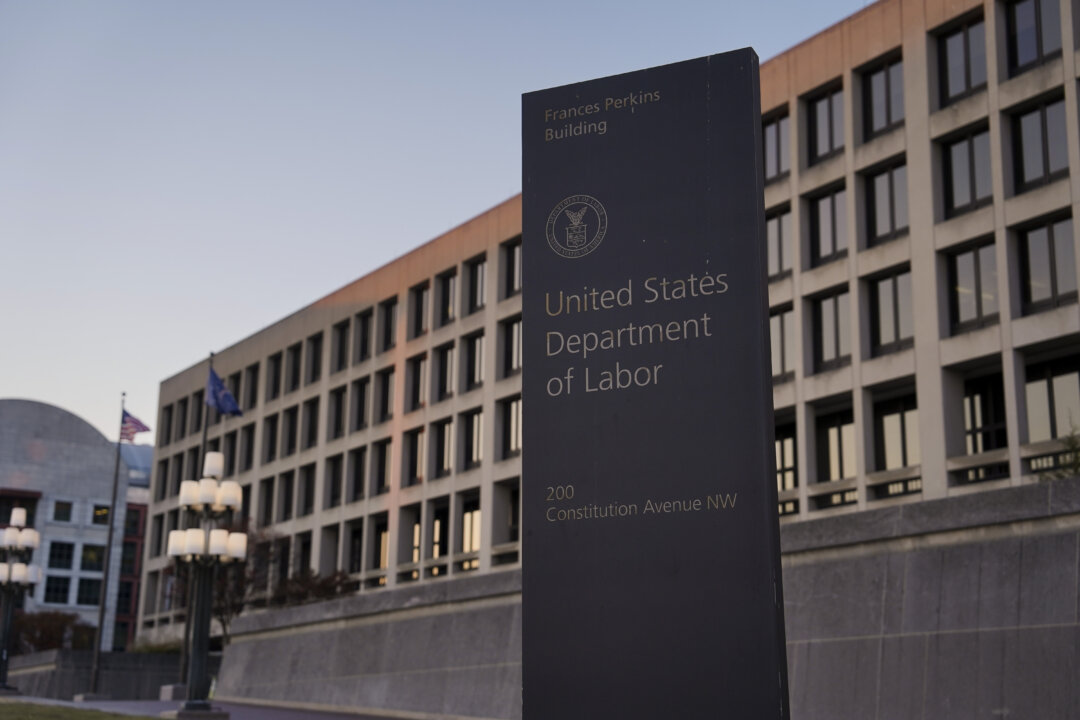


U.S. employers added barely over 100,000 new jobs in November, according to payroll processor ADP, with the number coming in well below market expectations and a fresh sign that the labor market is cooling as recession warnings abound.
America's private employers added just 103,000 new jobs in November, a disappointing figure in the face of consensus estimates on Wall Street that expected 128,000 new positions.
Not only was last month's job growth lackluster but also October's figures were revised downward in ADP's latest report from an initial 113,000 to 106,000.
On the job-gains side, the biggest gains were in trade, transportation, and utilities (55,000), followed by education and health services (44,000).
Weakness abounded in both goods and services, however, with declines in construction, leisure and hospitality, as well as in a sector that has been mired in malaise for some time—manufacturing.
The 'Boost Is Behind Us'
Leisure and hospitality—the low-wage sector that posted strong job gains during the post-pandemic recovery—lost jobs for the first time in three years, shedding 7,000 positions."Restaurants and hotels were the biggest job creators during the post-pandemic recovery," Nela Richardson, chief economist, ADP, said in a statement. "But that boost is behind us, and the return to trend in leisure and hospitality suggests the economy as a whole will see more moderate hiring and wage growth in 2024."
Related Stories
Manufacturing led the losses, dropping 15,000 jobs and adding to other data showing that America's factories are suffering a slowdown.
The ADP report "joins a chorus of indicators hinting at a cooling labor market," Michael McDonough, chief economist, financial products, Bloomberg LP, said in a post on X.
Some of those indicators include job openings falling to their lowest level since March 2021, new orders for U.S.-made goods suffering their sharpest drop in more than three years, and a closely watched factory activity gauge showing that U.S. manufacturing activity contracted in November for the thirteenth consecutive month.
"Gradual loosening of the labor market continues," analyst Charlie Bilello said in a post on X.
Also, a key U.S. leading economic indicator from The Conference Board dropped for the nineteenth consecutive month in October.
"The Conference Board expects elevated inflation, high interest rates, and contracting consumer spending—due to depleting pandemic saving and mandatory student loan repayments—to tip the U.S. economy into a very short recession," Justyna Zabinska-La Monica, business cycle-indicators senior manager at The Conference Board, said in a statement.
The Conference Board predicts that the U.S. economy will grow in 2024 by a paltry 0.8 percent.
The latest data show that the U.S. economy grew at a 5.2 percent annualized rate in the third quarter, a forecast-beating pace that some analysts said looks better on paper than in reality, because when looked at from the income side, the data suggest that momentum has waned and growth is slowing.
Although gross domestic product grew by 5.2 percent, gross domestic income grew at a paltry 1.5 percent in the prior quarter.
Recession Watch
Even though the U.S. economy has defied predictions for a recession, recent economic data paint a picture of a looming slowdown, including lackluster growth in consumer spending and a cooling job market.Recent data from October show that 69 percent of U.S. consumers expect a recession over the next 12 months, while a whopping 84 percent of C-suite executives believe a contraction is inevitable.
On the consumer side, as the excess savings accumulated during the pandemic have been increasingly depleted, there's been a significant rise in the number of Americans pulling money out of their 401(k) accounts to pay bills and buy necessities.
Mr. Dimon said geopolitical tensions and the energy transition were prompting governments to ramp up spending, which is inflationary. If a new inflationary spike were to materialize, this would pressure the Federal Reserve to raise interest rates further, which could tip the economy into a downturn.
“Interest rates may go up, and that might lead to recession,” he warned.


